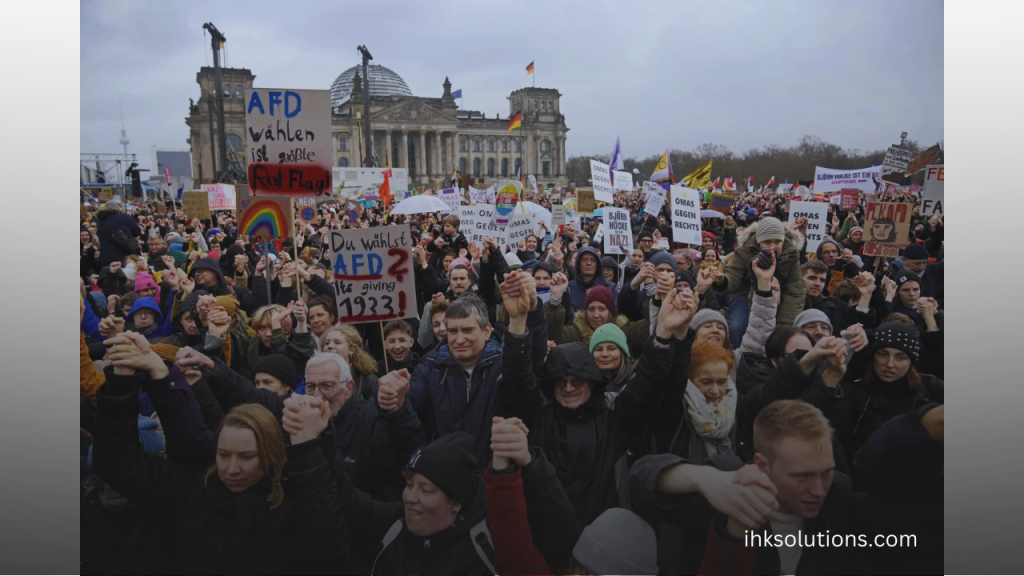Thuringia has traditionally been a stronghold for the far-right Alternative for Germany (AfD) party, which polls suggest could become the second most powerful party in the central federal state’s parliament.
More than 4,000 protesters gathered in Erfurt on Sunday to voice their concern about the rising popularity of the far-right in Germany’s federal state of Thuringia.
This central German state has long been a bastion for the far-right Alternative for Germany (AfD) party, with polls indicating that it could become the second strongest party in the regional parliament.
“Despite our work in teaching history and politics, about 30% of people in Thuringia are currently ready to vote for the Alternative for Germany party. But of course, this doesn’t mean we should give up,” said Jens-Christian Wagner, Director of the Buchenwald Memorial.
Buchenwald, located near the city of Weimar in Thuringia, was a Nazi German death camp during World War II.
Approximately 56,000 prisoners—about a quarter of the camp’s total inmates—were systematically killed there between 1937 and its liberation by Allied forces in 1945, most of whom were members of the Jewish community.
A recent poll showed that the conservative Christian Democratic Union (CDU), which is part of the national ruling coalition with the center-left Social Democrats and the Greens, is trailing by 2% behind the Alternative for Germany party.
Saxony and Brandenburg are also set to hold state elections on the 1st and 22nd of September, respectively.
These two states represent 10% of Germany’s population. However, the results of their elections, along with those in Thuringia, are expected to have a significant impact on national politics.

